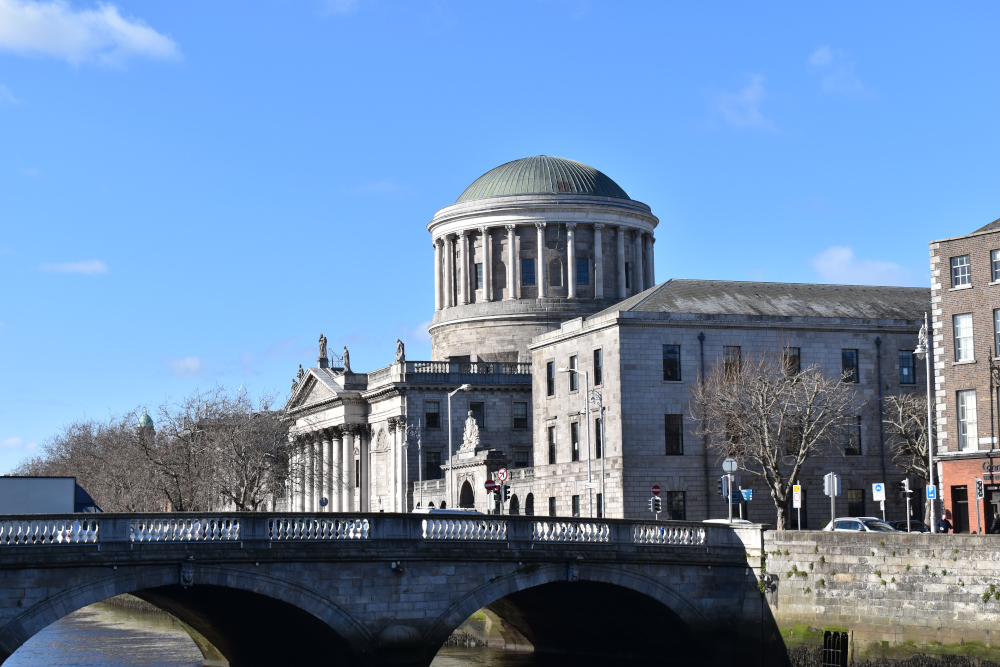High Court: Non-prosecuting gardaí have no right of audience in District Court matters

The High Court has determined that members of An Garda Síochána only have a right of audience before the District Court where they have initiated and conducted the prosecution of the accused. Accordingly, the court held that non-prosecuting gardaí do not have a right of audience and could not present cases on behalf of their colleagues.

About this case:
- Citation:[2022] IEHC 320
- Court:High Court
- Judge:Ms Justice Marguerite Bolger
In a decision that may have wide-ranging impacts on prosecutions in the District Court, Ms Justice Marguerite Bolger held that Order 6 Rule 1 of the District Court Rules was ultra vires insofar as it purported to grant rights of audience to non-prosecuting gardaí, which was contrary to the meaning of section 8 of the Garda Síochána Act 2005.
Background
The defendant appeared before the District Court in August 2021 on a charge of possession of a small quantity of cannabis. The prosecuting garda was Garda Varley. The defendant was represented and indicated that he was pleading not guilty to the offence.
Neither Garda Varley nor lawyers for the DPP appeared to prosecute the case. Instead, a Sergeant Riley appeared and indicated that he was instructed by Garda Varley in the case and he was not in a position to proceed with the prosecution. However, Sergeant Riley stated that he could provide facts to the court in the event of a guilty plea. Sergeant Riley had no other involvement in the case.
The defendant opposed the right of Sergeant Varley to appear based on the provisions in section 8(2) of the Garda Síochána Act 2005. The section stated that “any member of the Garda Síochána may institute and conduct prosecutions in a court of summary jurisdiction, but only in the name of the Director of Public Prosecutions”. The defendant contended that the phrase “institute and conduct prosecutions” meant that a garda only had a right of audience if they were actually prosecuting the matter.
As such, it was submitted that a garda could not take instructions from, and appear on behalf of, the prosecuting member. The defendant therefore submitted that Order 6 Rule 1 DCR was ultra vires to the extent that it allowed any garda a right of audience in the District Court.
The trial judge decided to state a case to the High Court for a determination on the issue. The question simply asked whether Sergeant Riley had a right of audience to prosecute the case.
In opposing the defendant’s interpretation of section 8, the State submitted that the phrase “institute and conduct prosecutions” was disjunctive rather than conjunctive. As such, it was argued that any garda could institute or conduct proceedings in the District Court. In making this submission, the State relied on the history of gardaí prosecuting in the District Court as police/common informers and stated that it would amount to an absurdity for only prosecuting gardaí to have a right of audience.
High Court
Ms Justice Bolger began her decision by holding it was appropriate to use the consultative case stated procedure to challenge the validity of the District Court Rules. The procedure had previously been used to strike down District Court Rules. Accordingly, the Court did not accept the State’s submission that the judicial review procedure should have been used (DPP v. Dougan [1996] 1 IR 544 considered).
Next, the court considered the history of the police informer and garda rights of audience in the State. It was held that the police informer (now known as the prosecuting garda) was a long-standing practice in Ireland, but that the practice only ever provided for the informer to conduct the prosecution (The People (DPP) v. Roddy [1977] 1 IR 177).
In interpreting section 8(2) of the 2005 Act, the court noted that, generally, words in statue should be given their ordinary and natural meaning (Howard v. Commissioner of Public Works [1994] 1 IR 101). It was held that no clear legislative intention had been identified by the State to persuade the court to interpret the phrase “institute and conduct” as being disjunctive.
The court rejected the submission that the phrase “institute and conduct” was intended to address the situation of the gardaí as common informers under the 2005 Act. It was held: “That ‘situation’ only applies to a garda both prosecuting and conducting a case as that was what a common informer could do at the time the legislation was enacted. It does not address the ability of a non-prosecuting garda to conduct a case or any desirability of the efficient and effective delegation of duties between officers serving in the single force under a shared command structure.”
The court was not satisfied that this interpretation represented a radical change in the law, as contended by the State, in circumstances where there was no previous provision for non-prosecuting gardaí to conduct proceedings. Even if the court was incorrect on this point, the clear and unambiguous meaning of “and” was conjunctive and did not mean “either/or”.
Considering the rights of audience before the District Court, Ms Justice Bolger rejected the defendant’s submission that allowing a right of audience to any gardaí was the equivalent of creating a third and unregulated legal profession. It was held that the 2005 Act did not unlawfully expand the category of persons with a right of audience beyond what was permitted in law.
However, the court held that a right of audience was a highly regulated entitlement and that it was “far more significant than a mere matter of practice and procedure”. The court determined that a right of audience was “akin to the administration of justice”.
The court accepted that the District Court Rules Committee was entitled to regulate practice and procedure in the court. However, the construction of Order purported to alter or modify the terms of section 8(2), which was impermissible (State (O’Flaherty) v. O’Floinn [1954] IR 295; DFC Commissioner of An Garda Síochána [2015] 2 IR 487).
Conclusion
As such, the court held that Sergeant Riley had no right of audience before the District Court to prosecute Garda Varley’s case. In order for a garda to have a right of audience before the Court, the garda must have both initiated and conducted the prosecution.
The desirability of efficiency in the District Court prosecution system “cannot be permitted to overlook the application (even over many years) of a rule that goes impermissibly beyond what is permitted”, the court said.
The matter will be listed for mention on 16 June for making final orders in the case.
Director of Public Prosecutions v. Davitt [2022] IEHC 320








